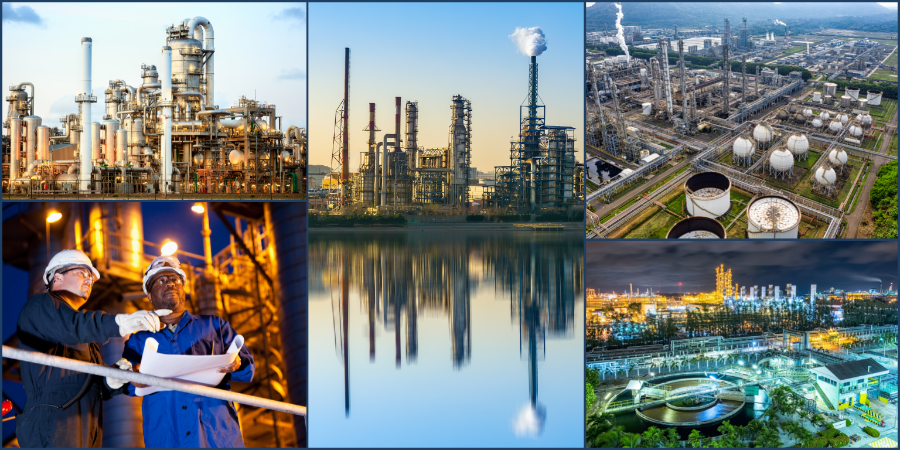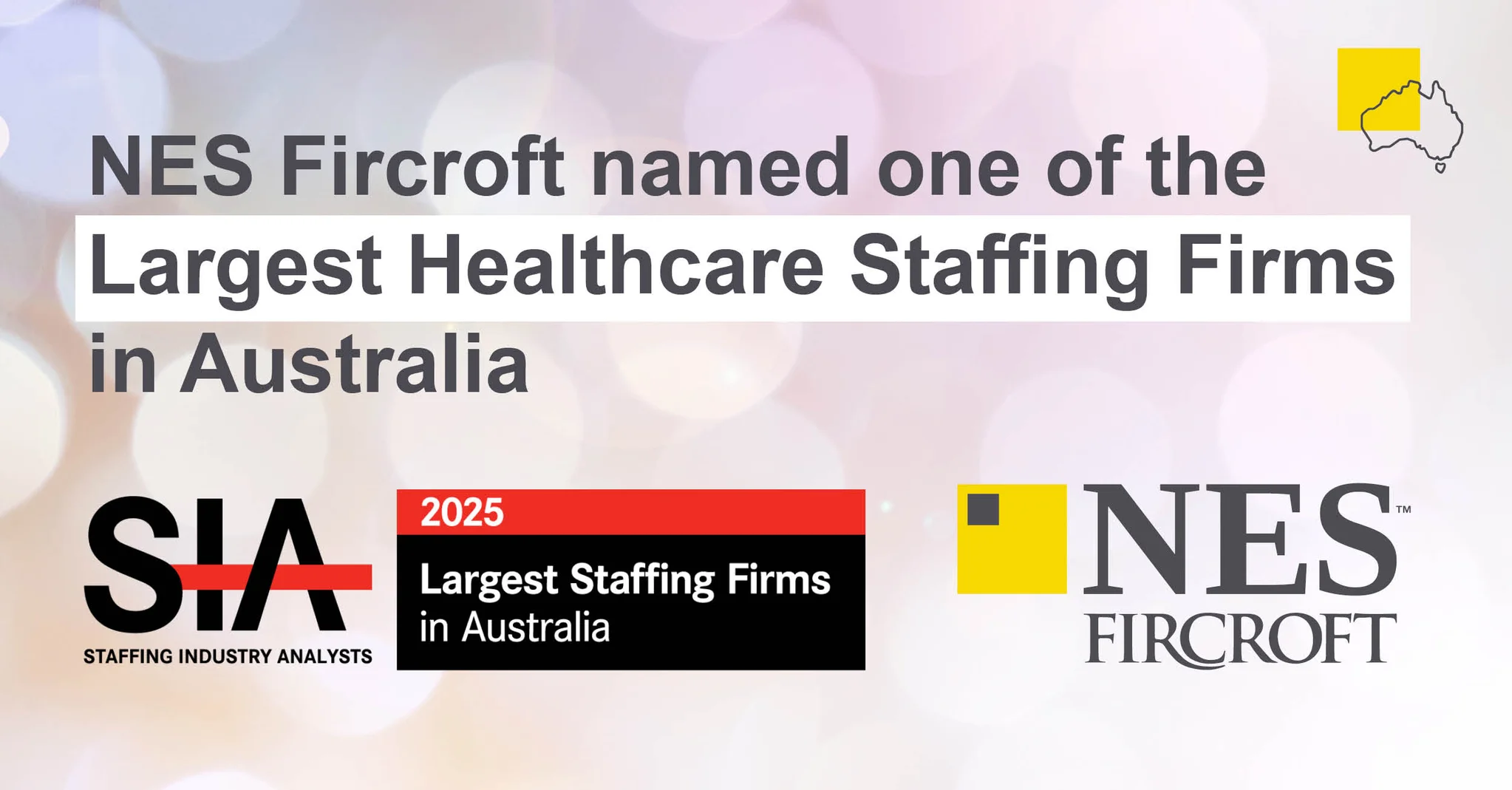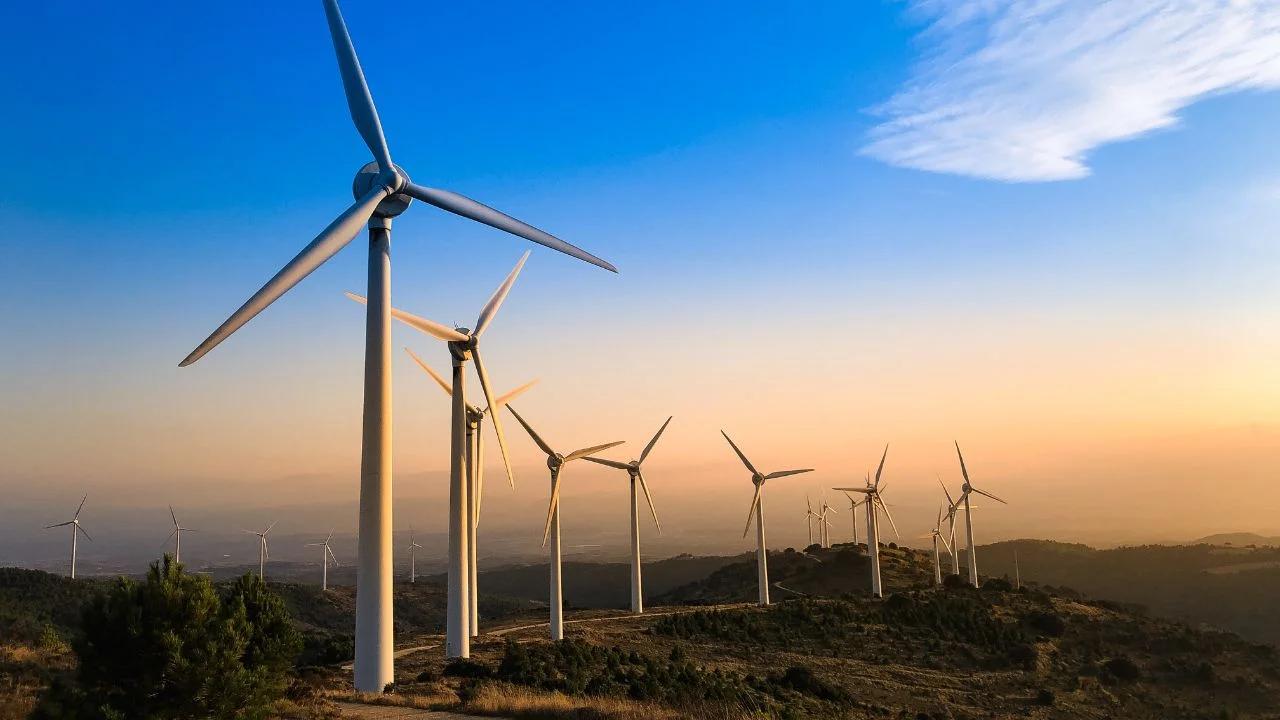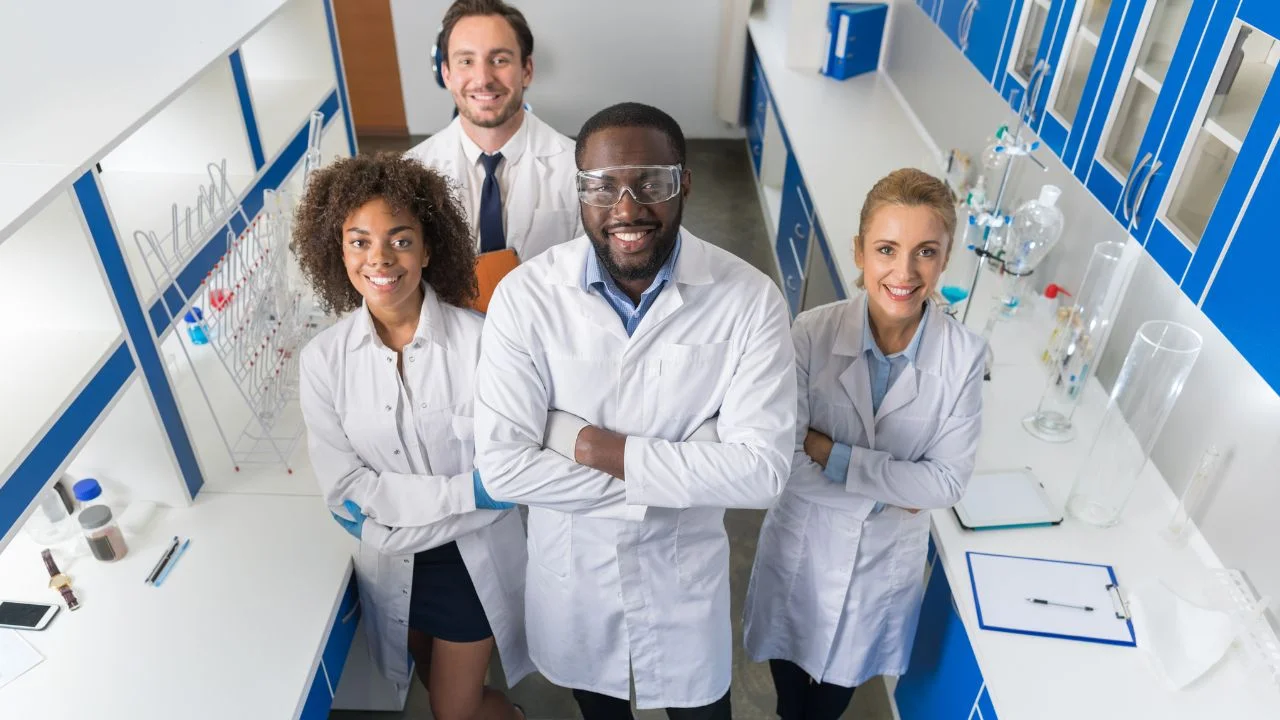The Biggest Chemical Plants In The World
11 May, 20229 minsChemical plants play a vital role in the world’s economy. By converting raw materials such a...

Chemical plants play a vital role in the world’s economy. By converting raw materials such as water, minerals, fossil fuels, and metals into hundreds of thousands of different products, the industry helps to make life as we know it possible.
Not surprisingly, the chemical sector’s income is astronomical. In 2022, it reached $5.7 trillion - the highest figure recorded in the industry over the last 15 years. These various chemical processing plants help supply basic chemicals, pharmaceuticals, specialities, agricultural chemicals, and consumer products to companies and consumers worldwide.
It’s hard to imagine just how much of an impact the chemical industry has on our daily lives or its magnitude. With that said, we’ve produced this blog to highlight the sheer scale of the chemical sector and provide a comprehensive overview of five of the largest chemical plants in the world.
In this blog, we’ll highlight the following chemical plants:
- Ludwigshafen Chemical Complex, Germany – BASF
- BASF-YPC Nanjing Complex, China – BASF-Sinopec JV
- Freeport Complex, United States – Dow Chemical Company
- Sadara Chemical Complex, Saudi Arabia - Sadara Chemical Company
- Port of Antwerp Integrated Chemical Cluster, Belgium
1. Ludwigshafen Chemical Complex, Germany – BASF
Established by the late German industrialist Friedrich Engelhorn in 1865, BASF's Ludwigshafen site has grown into the world's largest integrated chemical complex. The area covers approximately 10 square kilometres and is home to 200 chemical manufacturing plants connected by more than 2,850 km of pipelines and over 230 km of rail track.
With materials such as rock salt, sulphur and naphtha, the site produces thousands of consumer-based products, including ammonia, ethylene, ethylbenzene, formaldehyde and styrene. As a significant player in the chemical industry, BASF delivers its products to support industries such as automotive, electronics, construction, home care, furniture, agriculture, paints and coasting, nutrition and more.
The Ludwigshafen site is also the base for BASF's main headquarters while being the home to the origin of the organisation's Verbund concept. This concept involves linking manufacturing facilities, energy flows, and logistics in the same place to ensure resources are used as efficiently as possible.
In addition to the Verbund concept originating at this site, BASF has also developed five other Verbund sites in Europe, the United States, and Asia since its first conception.
BASF is the largest employer in the region, and the Ludwigshafen site is responsible for about a third of the company's total workforce. For context, their talent acquisition efforts have seen them employ approximately 39,000 people across various chemical jobs. The chemical complex is the base for multiple divisions of the BASF Group, recruiting talent in services such as:
- Health and Safety
- Environment
- Investor relations
- Communications
- Site management
- Technical engineering
- Finance
- Law
In 2023, BASF Group recorded sales of over €68 million. As recorded in April 2024, the market cap for BASF is $46.76 billion, making it one of the largest chemical plants worldwide.
2. BASF-YPC Nanjing Complex, China – BASF-Sinopec JV
As one of the biggest chemical companies in the world, BASF operates another significant site—BASF-YPC Co. Located in Nanjing, China, this chemical complex is a fifty-fifty joint venture between Fortune 500 companies BASF and SINOPEC that was founded in 2000. The integrated petrochemical site, worth a $5.5 billion investment, produces approximately 3 million tons of polymers and other chemicals annually for the Chinese market.
These products are then used in a whole range of industries, including:
- Agriculture
- Automotive
- Chemical manufacturing
- Construction
- Electronics
- Hygiene
- Pharmaceuticals
Commercial operations on the site started in June 2005, with an initial investment of $2.9 billion. BASF-YPC established ten process chemical plants with a steam cracker plant producing 600,000 tonnes of ethylene annually. By September 2009, the second development phase began with expanding the existing chemical processing plants and constructing new facilities worth a total investment of $1.4 billion.
In 2012, the production capacity of fine chemicals was expanded, with the steam cracker refined to produce 740,000 tonnes of ethylene per year. BASF also continued expanding its ethylene oxide plant and began constructing its latest ethylene oxide purification unit.
The Nanjing site follows BASF’s Verbund concept, which means all the facilities are interconnected so that products, by-products, and energy can be used optimally. There are also acrylic acid, superabsorbent polymer, butyl acrylate, and Neopentylglycol (NPG) production facilities on site.
In November 2023, BASF and SINOPEC announced the expansion of their Nanjing chemical plants, including a new tert-butyl acrylate plant. This expansion comes in response to consumer demand across various industries in the Chinese market, including adhesives, coatings and paper. These new chemical manufacturing plants are focused on reducing carbon emissions by utilising renewable energy.
Sustainability and renewables are significant talking points in the chemical industry. Read our blog on How Chemical Companies are Embracing Sustainability to learn more.
3. Freeport Complex, United States – Dow Chemical Company
Dow is the largest chemical company in the United States. Dow’s Freeport Complex is a petrochemical site located in Texas. Production for the site started in 1940 when it became the world’s first chemical plant to extract magnesium from seawater.
This site is Dow’s largest integrated manufacturing site, with a production capacity of 7.98mtpa. It’s also North America’s largest chemical complex, employing more than 7,000 people in various chemical jobs, from engineering, HR, research and development, operations, technical services and manufacturing.
The Dow Chemical Company produces billions of pounds of products from its Texas chemical complex. These products include pharmaceuticals, cosmetics, computers, cleaning products, food, and more. Dow’s Freeport Complex focuses on supporting the lives of the global population, serving almost every consumer market, including food, health, medicine, construction, and transportation.
Otherwise known as Dow Texas Operations, the Dow Chemical Company consists of four main complexes: Plant A, Plant B, Oyster Creek, and Salt Dome. These chemical plants are connected by pipelines, roads, and rail and span over 7,000 acres and 1,900 buildings. Across this Freeport Complex are 65 manufacturing units. These units within the chemical complex help produce 44% of the company’s products sold in the US and 20% of Dow’s products sold worldwide.
The main product produced at the Freeport Complex is ethylene, but the site also manufactures propylene, polyethylene, and propylene oxide, among other things. In 2017, the Dow Chemical Company started operations of its new ethylene and plastics plants in Freeport, making it the first company in the United States to start a major ethylene project along the Texas Gulf Coast. This was part of Dow’s $6 billion expansion along the Gulf Coast.
In September 2023, the Dow Chemical Company launched the commercial operations of its methylene diphenyl isocyanate (MDI) distillation and prepolymers facility in Freeport, Texas. This new site aims to supply 30% more products to its customers, particularly those in the automotive, consumer, construction and industrial markets.
4. Sadara Chemical Complex, Saudi Arabia - Sadara Chemical Company
The Sadara Chemical Complex is owned and operated by the Sadara Chemical Company, a joint venture between Saudi Aramco and the Dow Chemical Company. It’s the world’s largest-ever integrated chemical complex to be completed in a single phase and represents the largest-ever foreign direct investment in the Saudi petrochemical sector.
Construction for the project, worth $20 billion, started in 2011 in the Jubail Industrial City II on the east coast of Saudi Arabia. By 2015, the chemical complex began producing ethylene and polyethylene. Jubail was chosen because of its access to the growing chemical activity in the region and wider Asia.
This mega-project, covering 6 square kilometres, involved the construction of 26 production units capable of manufacturing over 3 million tons of high-value chemicals and performance plastics annually. In addition, 14 of these 26 plants would make chemicals that had previously never been produced in Saudi Arabia.
Along with downstream industrialisation and feedstock integration, Sadara’s product portfolio consists of the following:
- Amines
- Glycol ethers
- Isocyanates
- Polyether polyols
- Polyethylene
- Polyolefin elastomers
- Propylene glycol
The Sadara Chemical Company also supports the production of:
- Oil and gas chemicals
- Raw materials
- Bedding
- Furniture
- Cosmetics
- Detergents
- Soaps
- Automobile parts
- Brake fluids
- Personal care products
- Water treatment chemicals
Full commercial operations for the site started in 2017, and the complex has employed more than 4,300 people in chemical jobs. Sadara stands for "at the forefront" or "in the lead" in Arabic. The name represents the company's progressive nature, which remains committed to supporting Saudi Arabia's downstream development and economic diversification of chemical plants in line with the Kingdom's Vision 2030.
5. Port of Antwerp Integrated Chemical Cluster, Belgium
Our final entry to our list of the biggest chemical plants in the world is Belgium’s Port of Antwerp integrated chemical cluster. Known as Europe’s largest integrated chemical cluster, the Port of Antwerp covers a surface area of over 14,000 hectares and is home to some of the world’s largest chemical companies.
As many as 1,400 companies call the Port of Antwerp-Bruges their home. Seven of the ten biggest chemical companies in the world are present in Antwerp, and the cluster has received investment from major companies such as BASF, TotalEnergies, Lanxess, and Evonik. The port employs over 160,000 people directly and indirectly, producing an added value of €21 billion.
The Port of Antwerp also has Europe’s largest storage capacity within the petrochemical industry, with 9.6 million square metres of liquid bulk storage and 750,000 square metres of silo storage. It’s also the largest producer of ethylene in Europe.
Over a hundred different product pipelines spanning more than 1,000 kilometres interconnect all the on-site manufacturing and storage companies, making the port one of Western Europe's most valuable pipeline hubs. The port is also exceptionally well connected, perfect for worldwide chemical distribution. Alongside the Port of Bruges, it has direct services to 1,300 North and South America and West Africa ports.
It’s also perfect for trade in Europe due to its central location and proximity to German and French industrial hubs. The Port of Antwerp-Bruges continuously strives to offer companies a reliable and environmentally sustainable solution to transport their liquid products across Europe.
Final Thoughts on The Biggest Chemical Plants In The World
With a growing demand for high-quality, modern materials produced sustainably and responsibly, the facilities and technology that drive the chemical industry will continue to develop and expand.
Chemical manufacturing plants produce a range of valuable products and serve as catalysts for innovation, sustainability, and economic growth. From implementing integrated manufacturing processes to embracing renewable energy sources, these chemical processing plants showcase the sector's commitment to efficiency, environmental responsibility and job creation.
NES Fircroft and Supporting the Chemical Industry
If you’re a candidate seeking to advance your career as a chemical engineer, read our piece on How Chemical Engineers Can Become Renewable Energy Engineers. Alternatively, if you’re an organisation seeking chemical recruitment support, discover more by clicking the links to our respective contract and permanent pages.
NES Fircroft support innovative candidates and technical clients across a diverse range of engineering fields and industries. We understand the importance of finding the right mix of forward-thinking mindset, technical knowledge, and behavioural excellence in recruitment.
Our global chemical recruitment teams deliver technical resources to your business, sourcing key hires that fit seamlessly into your company, whether you’re an operator of major chemical plants or a start-up looking to make your mark in the chemical sector. We’re also well-versed in helping bright-minded people search for available chemical jobs to enhance their careers.
Contact us today to find out how we can support you with your chemical recruitment needs.









